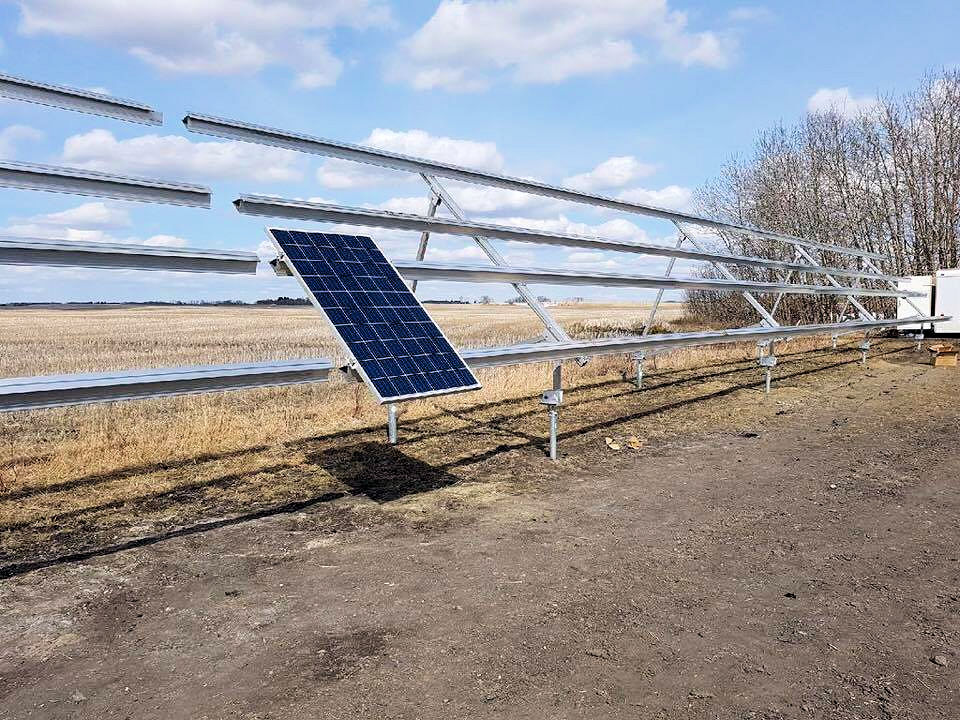Solar Energy systems for your home
 June 1, 2017
June 1, 2017
Let’s be honest right away, Climate Change is real, despite what Donald Trump says. It is a real issue this world faces, which is only getting worse.
Here are 6 Quick Facts about climate change.
1 – 600,000 die a year due to weather related events.
2 – 2005, 2010, and 2014 are the hottest years recorded in history.
3 – Montana’s Glacier Park has lost 125 of the 150 glaciers they used to have.
4 – Cows cause more methane than the oil industry,
5 – 99.84 percent of California’s land is in a drought.
6 - Thirty-seven percent of Americans believe that global warming is a hoax, and 64 percent don't believe that climate change will seriously affect their way of life. Or basically all those people have no clue what reality is.
I decided to do some research about ways I can help the environment and came across a local company that is providing a new wave of energy ideas to Brandon, and Western Manitoba.
This company is called Solar Manitoba. Their goal is to change the way we all think about the environment by using Solar Energy, which could mean eliminating Hydro costs after 10 years.
Currently in Manitoba, Solar Energy is used in only 60 homes and business’s, which isn't a lot. Lucky for people, Manitoba Hydro has a plan to increase that. If you decide to install solar panels in your home, they will give a grant of up to 25-30 percent, which would help with the roughly $30,000 in install prices. Yes that's right, an average home can expect a 30k bill to install solar, but when you break it down the math, it's not as bad as it seems.
$30,000 installation of solar panels and system and APP for your home
$10,000 grant from Manitoba Hydro
So roughly, you are out of pocket $20,000 dollars. Perhaps a big number, but if your bill is $200 dollars on average per month you would pay for this entire system in approximately 10 years as well as adding value to your home.
Imagine having NO hydro bill after 10 years. Now for lots of us that is an eternity but the long term savings for yourself plus the environment would be very valuable. The solar energy system can also be added to your house insurance.
In the photos featured below you will see the largest installation of its kind in Manitoba. These photos are from a farm installation outside of Rapid City.
BDNMB had a chance to ask some questions to Rob Mulligan, a local electrician and contractor, with Solar Manitoba.
BDNMB - How far is Manitoba behind in solar?
Rob – we are very far behind compared to say India, California and Germany.
BDNMB – Explain how Manitoba Hydro decides if you get a grant and how much?
Rob – MB Hydro gives you a dollar a watt based on your average bill over the past two years.
BDNMB – Can anyone apply to get this done?
Rob – Well no if your house if blocked by trees or if it faces North then this project would be difficult.
If you are interested in getting solar for your home, cabin or business here are the steps to follow:
Email: earthpowerinfo@hydro.mb.ca and ask what would my maximum solar rebate be? Provide them with your name, address and Hydro account number.
When you send the email, please CC the president of Solar Manitoba at justin.phillips@sycamoreenergy.com and mention Rob.
BDNMB reached out to Manitoba Hydro and at this time they are not prepared to answer questions in regards to Solar Energy. However they do urge you all to use LED lights according to their Twitter account and website.

![]() December 5, 2025
December 5, 2025







![]() December 5, 2025
December 5, 2025
![]() December 4, 2025
December 4, 2025![]() December 2, 2025
December 2, 2025![]() December 2, 2025
December 2, 2025![]() December 1, 2025
December 1, 2025![]() December 1, 2025
December 1, 2025![]() November 27, 2025
November 27, 2025
![]() June 4, 2017
June 4, 2017
![]() June 2, 2017
June 2, 2017
![]() June 1, 2017
June 1, 2017
![]() May 29, 2017
May 29, 2017
![]() May 23, 2017
May 23, 2017